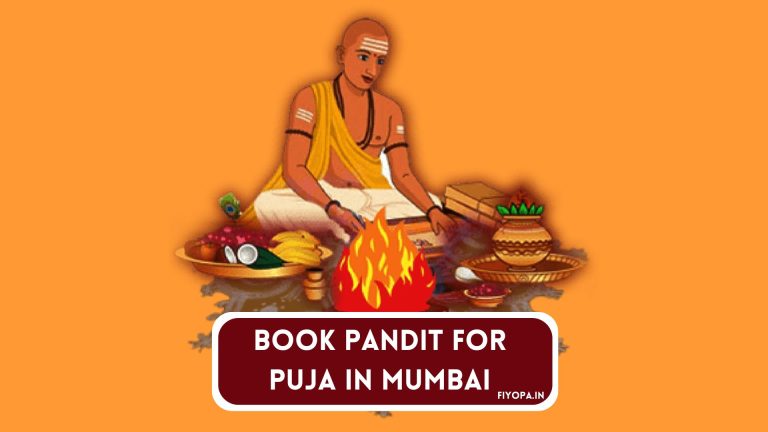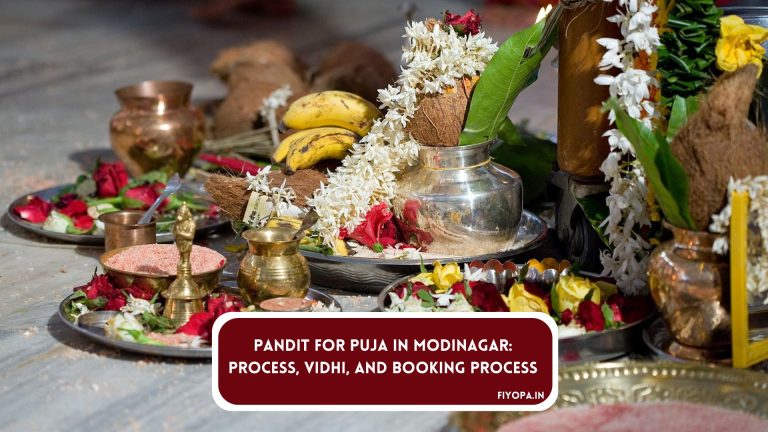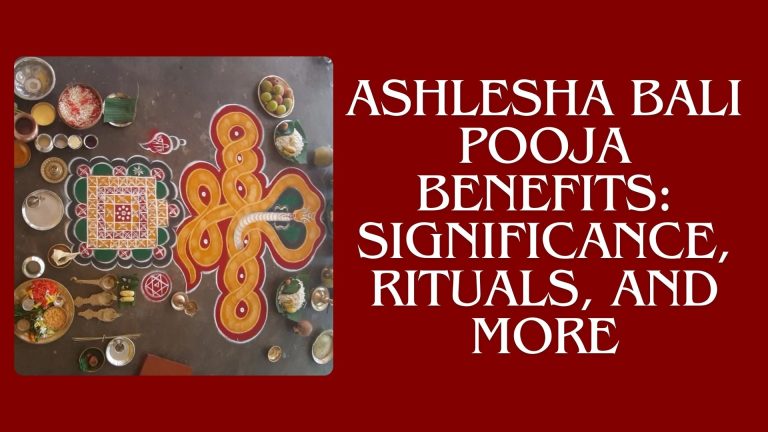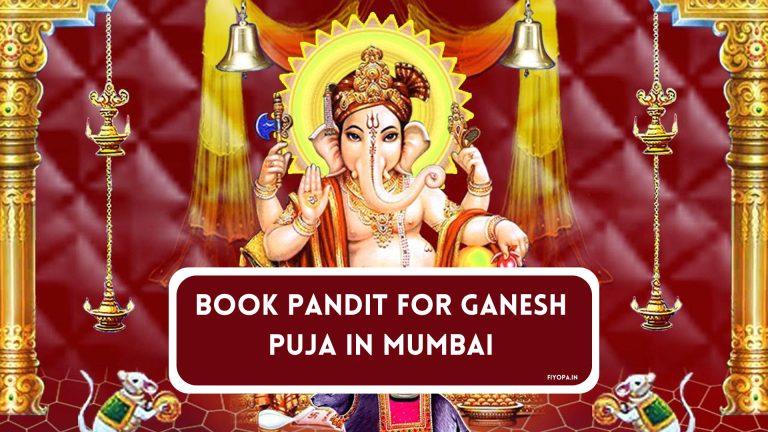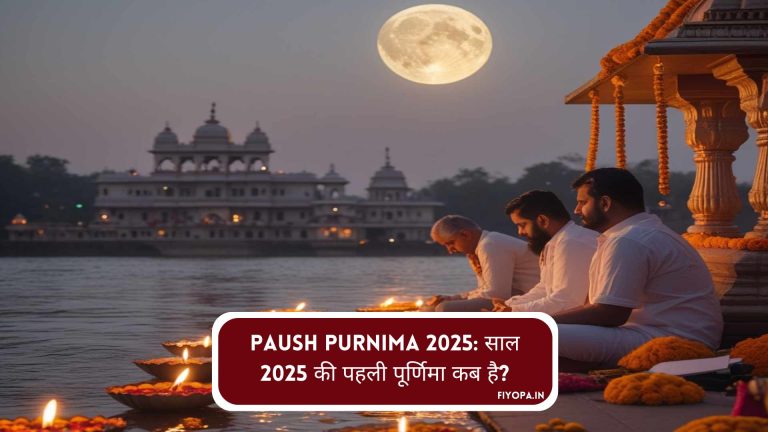Pitru Paksha 2024: Start Date, Timing, Ritual, History, and Significance!
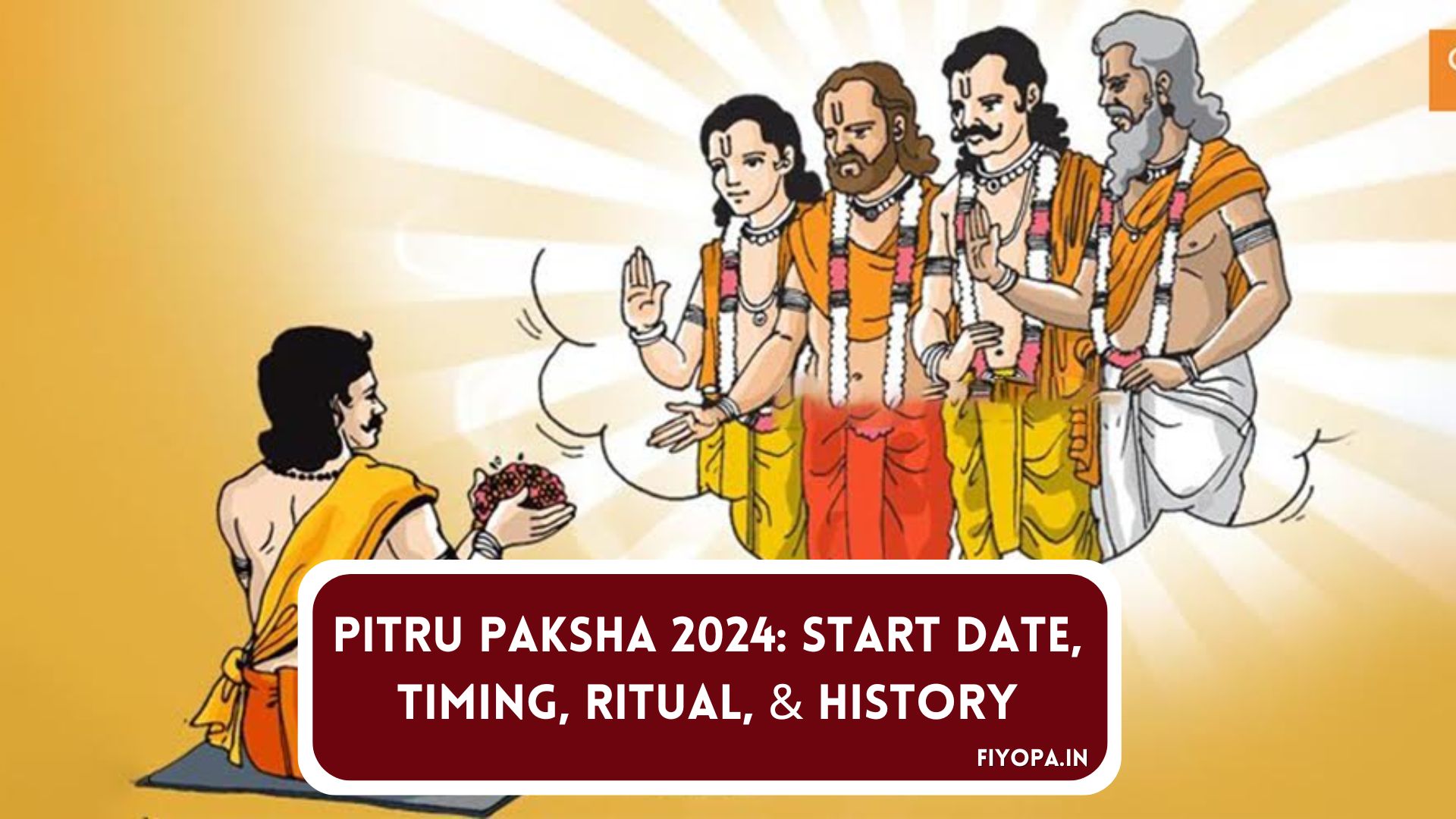
Pitru Paksha is a meaningful moment during the Hindu calendar when people celebrate their ancestral ancestors. This special two-week timeframe is especially significant because families gather to offer prayers and rituals to those who passed away. to the grave. The article covers all important details regarding Pitru Paksha 2024, such the date it will begin and ends, its timings, historic background and significance in the spiritual world of Hinduism. If you’re interested in the significance of this ceremony or wish to know more about the significance of it, keep going!
What is Pitru Paksha?
Pitru Paksha, 16 days of the Hindu lunar calendar when Hindus give homage to their past ancestors by performing different rituals, prayers and sacrifices. The time of this celebration is usually the month of Bhadrapada (September-October) and is thought to be the time to pay tribute to the deceased family members and seek their blessings on those who live.
In Pitru Paksha, rituals known as Shradh take place, during which the offering of water, food, as well as other sacrifices are offered to bless the souls of the deceased, assisting them get peace and release. The belief is that this ritual ensures that one’s ancestral relatives are well during the next life, and providing harmony and prosperity for the entire family. This is an important element of Hindu belief in karma, Reincarnation and the afterlife.
Pitru Paksha 2024 Start Date
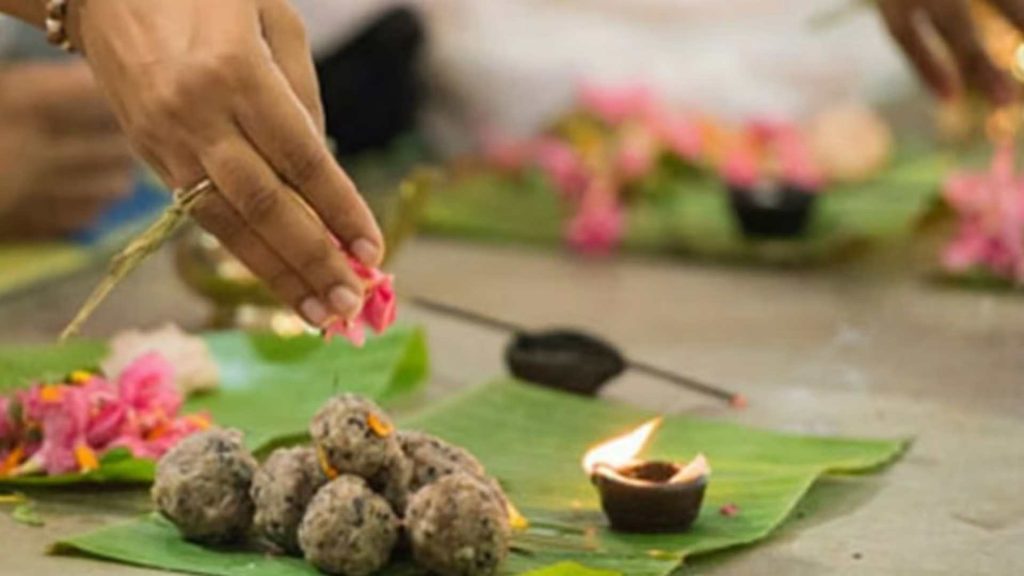
in 2024. Pitru Paksha is set to start on the 17th of September, Tuesday 2024 The festival will run for 16 days and will end on Wednesday, October 02, 2024, and the celebration of Sarva Pitru Amavasya Also called Mahalaya Amavasya. The time is thought to be extremely favorable for the practice of Shradh practices and are meant to honoring one’s ancestral ancestors as well as hoping for their blessings on prosperity as well as health and peace.
Pitru Paksha is always at the time of full moon (Purnima) that falls in the month Bhadrapada within the Hindu lunar calendar. It also is completed on the non-moon day (Amavasya). The last day of the month, Sarva Pitru Amavasya, is considered to be the most important day because the belief is that all souls of relatives, no matter the exact date they died will be blessed by the day of this celebration. Through this period, Hindus engage in rituals such as the Tarpan (offering drinking water), Pind Daan (offering food) and charitable giving, which all aim to assure that the spirits of their deceased ancestors are at peace as well as obtain moksha (liberation).
Pitru Paksha 2024 Timing
In 2024, Pitru Paksha will commence on Tuesday, September 17, and conclude on Wednesday, October 2. The observance begins with the Purnima Tithi (Full Moon) and concludes with the Amavasya Tithi (New Moon), marking the period for performing rituals to honour and remember ancestors. According to Drik Panchang, the auspicious timings are as follows:
- Kutup Muhurat: 11:51 AM to 12:41 PM (Duration: 49 minutes)
- Rohina Muhurat: 12:41 PM to 1:30 PM (Duration: 49 minutes)
- Aparahna Kaal: 1:30 PM to 3:57 PM (Duration: 2 hours, 27 minutes)
- Purnima Tithi starts: 11:44 AM on September 17, 2024.
- Purnima Tithi finishes: 8:04 AM on September 18, 2024.
Pitru Paksha 2024 Ritual/Vidhi
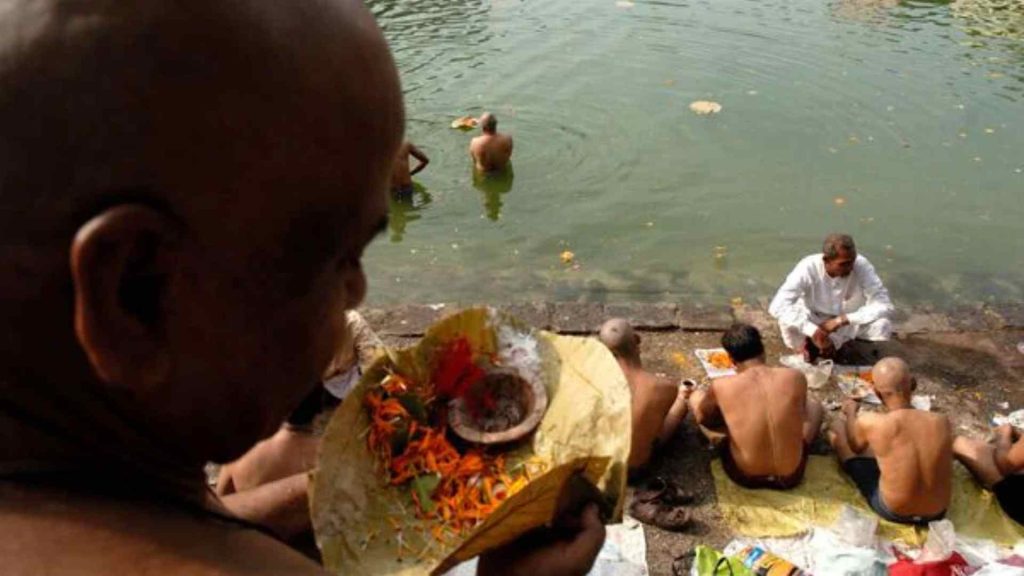
In Pitru Paksha 2024, Hindus adhere to a set of ceremonies and traditions designed to honor and please their ancient ancestors. The following are some of the main ceremonies and practices that typically are followed during this period.
1. Readiness and Cleanliness:
- Home Cleaning The home must be cleaned completely to make a holy space for the performance of ceremonies.
- bathing Take a ritual shower to cleanse oneself before beginning the ceremony.
2. Setting Up the Altar:
- Altar training: Set up an altar, or a sacred space within the house where offering are made. The most common place for this is the family’s prayer space or in a clean space.
3. Offering Water (Tarpan):
- Tarpan Ritual Serve water infused with sesame seeds, barley, and your ancestors. The ritual is generally performed in the morning hours and facing to the south.
- Mantras Repeat specific mantras as well as prayers at the time of ritual to assure that the offering is carried out properly.
4. Offering Food (Pind Daan):
- Readiness of Offerings ready particular foods including barley, rice, and the black sesame seed. They are usually blended with Ghee (clarified butter) along with other items of the holy.
- Pind Ceremony Set the offerings at a specific location and then perform the Pind Daan ritual. This involves the offering of these foods to spirits of the deceased. The ritual is performed in the idea that the offerings grant nutrition to spirits of those who have passed away.
5. Performing Shradh:
- Shradh Rituals Perform the Shradh ceremony with rituals that could include things like lighting a diya (lamp) and praying to honour our ancestors.
- Recitals Sing specific lines and songs dedicated to your family members of the past. Rituals are typically performed by a priest but can be carried out by family members.
6. Charity and Donations:
- Donating to the needy: As a part of rituals, it is traditional to give charity donations, like clothing, food or even money to the poor. The belief behind this is that it helps bring spiritual rewards and help those who came before in their quest.
7. Feasting:
- Family Meal Following the completion of the rituals that families usually gather to share dinner. The meal could include meals that were served during Pind Daan. pind Daan and then divided among the family members.
8. Final Prayers:
- End of Rituals End the ceremony by offering a final prayer for tranquility and the release of the souls of the deceased. Also, it is a time for reflection on the family unit.
The purpose of these rituals is to honour the memories of family members and ask for the blessings of their lives for those who live. The practice of these rituals with dedication and honesty is believed to create spiritual harmony and bring peace to the entire family.
Pitru Paksha 2024 Significance
Pitru Paksha is believed to be a sacred day in Hinduism and is a time when people are devoted to their ancestral gods. The festival has deep spiritual and religious significance when the people pray for their deceased loved ones. Traditions are observed at this time of year to welcome Brahmins females and male females to one’s house and offer them food as well as clothing.
It is essential to be pure for these ceremonies, which must be conducted with genuine intention and sincere emotion. If you are suffering from Pitru Dosha, this period is an ideal moment to find relief through doing Pitru Dosha Puja. Pitru Dosha Puja. The city of Gaya located in Bihar is one of the most renowned locations to perform this important ceremony.
History of Pitru Dosha Puja
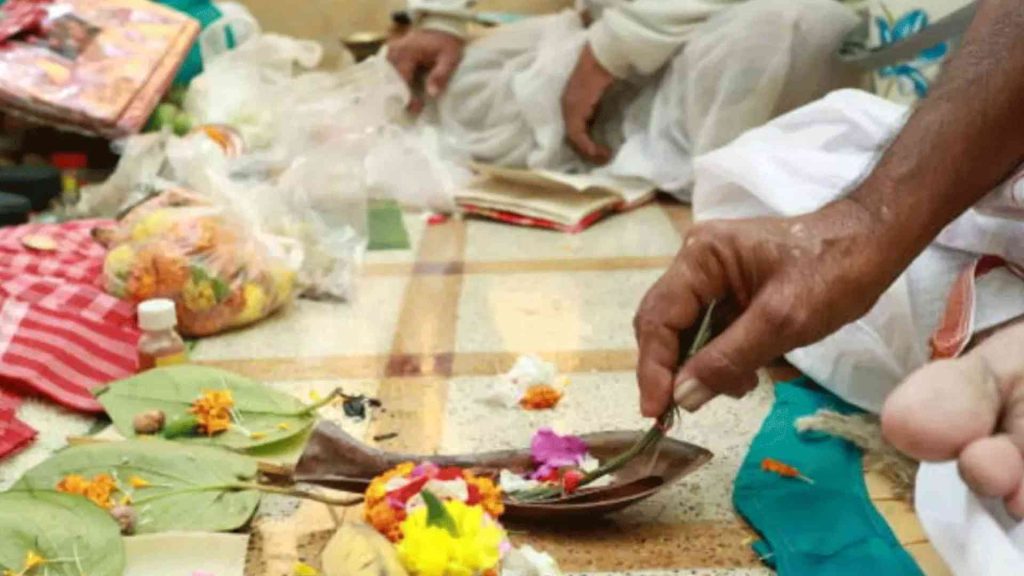
Pitru Dosha Puja is deeply deep within long-standing Hindu texts and traditions which reveals the importance of honoring your ancestors. The ritual is centered around Pitru Dosha. The idea is mentioned in the texts of ancient times, such as the Vedas as well as the Puranas, and reinforced in mythological stories such as ones in the Mahabharata and Ramayana in which the negative consequences of not fulfilling obligations toward ancestral relatives.
This puja ritual aims to address these problems through offering water, food as well as other items of symbolic value to arouse and obtain forgiveness from souls who have passed away. This ceremony is usually observed at Pitru Paksha or specific planetary periods where people face persistent issues that can be attributed to dosha from ancestral. By offering and praying the devotees seek to restore peace to their ancestral spirits, increase their fortunes, and bring harmony to their families.
This practice reflects the Hindu conviction in the power of karma and the influence that ancestors have in one’s life, highlighting the profound spiritual and religious importance of preserving these cherished connections.
Fee/Cost For Pitru Dosha Puja
The cost for performing Pitru Dosha Puja is contingent upon the location of the priest who is in charge of the ceremony, as well as the level of difficulty involved in the ritual. The typical cost ranges between between Rs3,000 and Rs15,000 or higher. The puja performed at the most prominent holy sites such as Gaya, Trimbakeshwar, or Haridwar could cost you higher due to the importance and presence of these places. A lot of temples and priests provide specific packages that are based upon the needs of families and personal preferences.
Conclusion:
Pitru Paksha has a huge significance within Hindu tradition as it is a day to pay homage and remember your ancestral ancestors. Through ceremonies like Shradh, Pind Daan as well as offerings of water and food families pray for blessings to bring peace happiness, prosperity, and wellbeing. This 16-day time period is rich in traditions as well as spiritual significance, gives the chance to ponder of gratitude, reflection, and connecting with the old. It doesn’t matter if you’re deeply invested in these traditions or are just getting to know their significance Pitru Paksha will remind you of the long-lasting bond that exists between those who live and those who have passed away and emphasizes the significance in respecting the ancestral past and a deep devotion.
Related Read:- Anantha Padmanabha Swamy Vratham: 2025 Date, Process, & Importance

